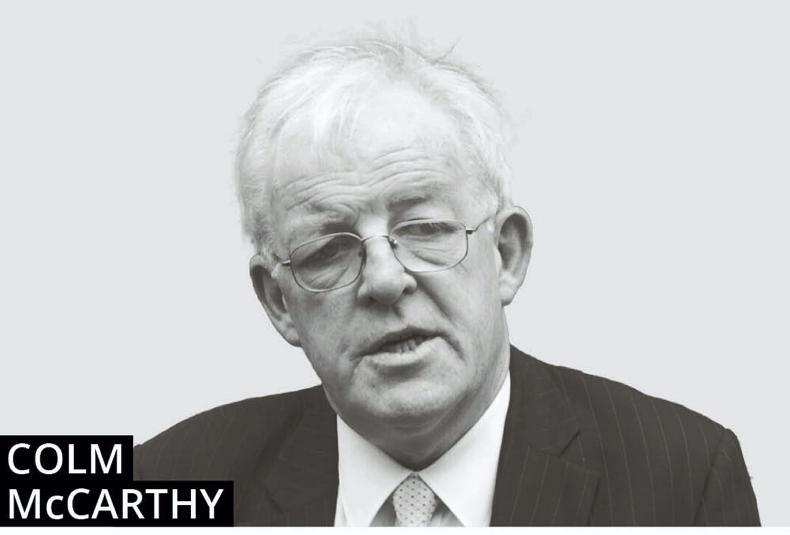Law impermissibly becomes ‘politics by another means’ when it annexes, for inflexible judicial determination, territory that properly belongs to open and democratic debate,” according to Justice Richard Humphreys at the High Court last month.
He dismissed An Taisce’s objection to Glanbia’s plans for a new cheese plant at Belview, which had been approved by the local authority and by An Bord Pleanála.
The grounds for An Taisce’s concern are straightforward
The High Court case was fence number three on the steeplechase course for Glanbia and it must now move on to fence number four in the Supreme Court, since An Taisce has lodged a further appeal.
The grounds for An Taisce’s concern are straightforward: it is are unhappy about dairy farming and the substantial emissions involved. It would like to curtail expansion and to reverse it through herd limits. Weighty and unresolved issues arise, including correct measurement of methane emissions. Some experts believe that the coefficient attaching to biogenic methane is excessive.
The attribution of territorial emissions by production rather than by consumption is contrary to advice from economists, since it creates the risk of carbon leakage through international trade. This is serious for Ireland, which produces around four times more food than it consumes.
The judge clearly felt that these were matters for national climate policy and not for the courts to adjudicate
The European Commission has expressed concern that emissions for some industrial goods are being outsourced through the trade channel, as with steel imports from China and should acknowledge that the same risk arises for successful agricultural exporters. Ireland is a victim of a haphazard measurement methodology.
The judge clearly felt that these were matters for national climate policy and not for the courts to adjudicate. The Supreme Court will now decide whether he was correct. It will also decide who pays for the costs to be incurred by An Taisce’s lawyers.
Losing litigants can be discouraged from imposing cost when the court decides that they should pay their own legal bills, even including those of the winning side.
For a large company like Glanbia, the costs of delay to a major construction project will outweigh the costs of legal representation
If a case is taken frivolously, the loser can face serious expense, as happened recently to journalists Gemma O’Doherty and John Waters, deemed to have pursued a weak case against the State over lockdown restrictions.
For a large company like Glanbia, the costs of delay to a major construction project will outweigh the costs of legal representation and there is a form of double jeopardy. For objectors seeking judicial review of planning decisions, the adverse award of costs is the only disincentive to the constant demand for replays.
Serious mission
There is an important difference between An Taisce and the two journalists. An Taisce has a serious mission and enjoys extensive support from public funds. It may feel duty-bound to oppose the cheese plant and the growth of the dairy industry. But Glanbia and their Dutch partners are entitled to feel aggrieved.
Since the organisation is almost entirely State-funded, even an adverse award of costs may not be an effective deterrent to no-hope litigation
The objectors have had their day in court. Three days in fact, with the county council, An Bord Pleanála and the April verdict from Judge Humphreys. How many days in court are objectors entitled to? Since the organisation is almost entirely State-funded, even an adverse award of costs may not be an effective deterrent to no-hope litigation.
The latest objection delays the Belview plant to 2024, according to Glanbia. An Bord Pleanála concluded its deliberations in June 2019, almost two years ago. The plant would already be commissioned had the initial determination by Kilkenny county council been accepted by the objectors, and the company may be unable to accept milk from farmers.
The replays without end are also a feature of the planning system for housing, where residents’ associations, supported by councillors and TDs of all parties, regularly delay developments for years even where the objectors lose at every stage.
This ability of objectors to impose cost on housebuilders, even when they lose, is a deep flaw in the system.
The planning legislation needs a thorough overhaul
The right to object, including costless access to judicial review and appeal to superior courts, is being abused. At times it appears that objectors feel entitled, not just to a hearing but to a veto. Denied a veto, there is a temptation to manufacture endless delay, deterring developers who may just lose heart, without having lost the substantive planning issue. The planning legislation needs a thorough overhaul to make developments aligned with government policy easier, and serial objections harder.






 This is a subscriber-only article
This is a subscriber-only article










SHARING OPTIONS: